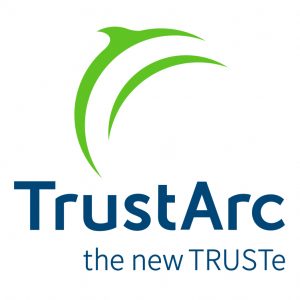Home
Use our global calendar of privacy events to locate an event near you.
FILTER BY
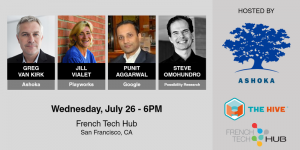
Mark Zuckerberg recently acknowledged that Facebook has “a responsibility to do more, not just to connect the world but to bring the world closer together.”
This strategic move comes at a critical point in time, where exponential technological progress begins to raise pressing questions about the future of our collective wellbeing.
In a world defined by relationships and connectivity, have we undervalued empathy as a key skill and currency?
Should empathy be a metric for grounding our technological progress in fairness and humanity?
Join a provocative discussion with social entrepreneurs and technology thought leaders who are asking these very questions and are already taking steps to re-calibrate major systems (like education) with empathy at the center.
Agenda:
6:00pm – 6:30pm Registration and Networking
6:30pm – 6:45pm Introduction by The Hive & Ashoka
6:45pm – 7:45pm Panel Discussion and Q&A
7:45pm – 8:15pm Wrap-up and Networking
Parking:
Free parking in adjacent streets or metered parking at 901 Illinois Street (Closes at 9:00 PM).
Speakers:
Greg Van Kirk – Leadership Group Member. Start Empathy, Ashoka
Greg is the Co-Founder of Community Empowerment Solutions and Social Entrepreneur Corps. He is an Ashoka Lemelson Fellow, Ashoka Globalizer and was recently recognized as Schwab Foundation “Social Entrepreneur of the Year for 2012 (Latin America)” at the World Economic Forum. Greg is the innovator who designed the MicroConsignment Model. He has served as a consultant for organizations such as USAID, Chemonics, VisionSpring, Soros Foundation, Church World Service, Inter-American Development Bank, IFC, Water For People and Fundacion Paraguaya in the US, Latin America and Africa. Greg also contributes time as “Social Entrepreneur in Residence” and has recently worked with Columbia University, NYU, Marquette University, Indiana University, University of San Diego and Arizona State University. He is a senior advisor for AshokaU. He has taught social entrepreneurship at Columbia University and NYU Wagner. Greg began working in rural small business development as a Guatemala Peace Corps volunteer in 2001. He worked in investment banking for five years before arriving in Guatemala. Two deals he led at UBS during this time won “Deal of the Year” honors from Structured Finance International magazine.
Jill Vialet – CEO and Founder, Playworks
CEO and Founder Jill Vialet has worked for more than 30 years in the nonprofit sector. In 1996, Vialet launched Playworks with two schools in Berkeley, California. Currently, the organization brings play and physical activities to children across the country, with offices in 23 cities. With a staff of 700, this year Playworks will reach 900,000 students through on-site coaches, professional training, and consultative partnership, serving 1,800 schools and youth-serving organizations. Prior to Playworks, Vialet founded the Museum of Children’s Art(MOCHA) in Oakland, California. She served as the executive director at MOCHA for nine years, ultimately expanding its programs to reach 20,000 young people each year.
Vialet graduated from Harvard University where she studied medical sociology, played rugby, and became actively involved with Harvard’s service-learning community. Vialet was a Eureka Fellow from 2000 to 2001 and in 2004 she was selected as an Ashoka Fellow. In 2009, Vialet and Playworks were selected as a member of the Clinton Global Initiative. In 2011, Jill was named by Forbes magazine as one of the top 30 leading social entrepreneurs and recognized by the Women’s Sports Foundation as one of 40 Women Leaders in honor of the anniversary of Title IX. In 2013, Jill was awarded the James Irvine Leadership Award and in 2014, Jill received the Pahara Aspen Education Fellowship.
Punit Aggarwal – Head of Entrepreneur Development, Google
Punit Aggarwal is Head of Entrepreneur Development at Google where he focuses on coaching acquired founders, developing leadership talent and teaching courses to enhance executive presence, wellbeing and emotional intelligence. Previously, he led Google’s global team of 20+ leadership talent acquisition professionals.
In addition to his role at Google, Punit is also an Advisor at the Founder Bay organization which provides a suite of leadership development services designed to encourage and challenge leaders to achieve their true potential, live their best lives and have maximum impact in the world.
Earlier in his career, Punit was an Executive Search Consultant in the Silicon Valley and Los Angeles offices of Korn Ferry, where he conducted senior-level assignments, including many C-suite roles, within the Global Technology and Media & Entertainment practices.
Prior to Korn Ferry, Punit was a Management Consultant with Deloitte Consulting, where he focused on strategy and operations across a wide array of industries. He also worked at a Silicon Valley start-up and in the United Kingdom for a leading mobile services provider overseeing a brand portfolio with P&L responsibility. Punit has spoken at Stanford University, Berkeley University and private audiences.
Punit holds a BA in Economics with honors from the University of Manchester and an MBA from the University of Southern California. He has served on the corporate advisory board for the Center for Management Communication at the USC Marshall School of Business. A London native, he and his wife reside in Northern California.
Steve Omohundro – President, Possibilities Research
Steve has been a scientist, professor, author, software architect, and entrepreneur doing research that explores the interface between mind and matter. He has degrees in Physics and Mathematics from Stanford and a Ph.D. in Physics from U.C. Berkeley. He was a computer science professor at the University of Illinois at Champaign-Urbana and cofounded the Center for Complex Systems Research. He published the book “Geometric Perturbation Theory in Physics”, designed the programming languages StarLisp and Sather, wrote the 3D graphics system for Mathematica, invented many new learning algorithms (including manifold learning, model merging, bumptrees, and family discovery), and built systems which learn to read lips, control robots, and induce grammars. He is president of Possibility Research and Self-Aware Systems, a think tank working to ensure that intelligent technologies have a positive impact. His work on positive intelligent technologies was featured in James Barrat’s book “Our Final Invention” and has generated international interest. He serves on the advisory boards of the Cryptocurrency Research Group, the Institute for Blockchain Studies, Dfinity Cryptocurrency, and the AI startup Cognitalk. Steve is an award-winning teacher and has given hundreds of talks around the world. Some of his talks and scientific papers are available here. He holds the vision that new technologies can help humanity create a more compassionate, peaceful, and life-serving world.
About Ashoka:
Over the last 35 years, Ashoka has pioneered the field of social entrepreneurship with the goal of creating a an “everyone a changemaker world.” Ashoka supports a network of more than 3,000 Ashoka Fellows who are implementing system changing solutions to human and environmental problems. By creating fundamental changes in the experiences of children and young people, Ashoka allows them to view the world differently and see their full potential as a changemaker.
About The Hive:
The Hive (www.hivedata.com) is a venture fund & co-creation studio based in Palo Alto, CA to co-create startups focused on AI powered applications in the enterprise. The Hive works actively with founders to help them create, fund and launch data-driven startups. The Hive model is a high touch model, that applies its entrepreneurial and operational experience to accelerate company building. The Hive team consists of successful company-builders, serial entrepreneurs and investors who have created market-leading companies with several billion dollars in exits.
The Hive Think Tank is a thought leadership forum consisting of a community of data experts with over 9500 ‘databees’. It brings together the community of entrepreneurs, business and technology practitioners focused on the use of AI approaches. Every other week, from 150 to 800 of these individuals meet to participate in The Hive’s thought leadership events that include talks, panel discussions and dinner discussions. They highlight the trends and best practices of AI and Big Data focusing on four key areas: Applications, Data Infrastructure, Data Science, and Entrepreneurship. Past events of The Hive have featured Steve Wozniak (founder of Apple), Edward Tufte (father of Visualization, Professor emeritus of Yale), Doug Cutting (father of Hadoop), Jonathan Reichental (CIO of Palo Alto), Deepak Chopra and Mike Milken.
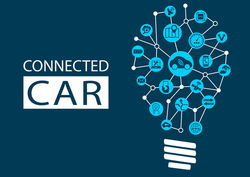
Learn how automotive manufacturers can take advantage of connected vehicle innovation, data management and analytical opportunities supporting these strategies – webinar from SAS and Bosch.
By 2030, market estimates from McKinsey & Company indicate the automotive revenue pool could grow by $1.5 trillion stemming from shared mobility, connectivity services and feature upgrades to vehicles. Driven by these potential gains, automotive companies are racing to find ways to define and claim their role with new business models.
Yet, what is possible for automotive companies to achieve now given the availability of accessible driver and vehicle information? How can innovation teams take advantage of near-term opportunities that propel both current and future projects enabled by connected vehicle, mobility and on-demand services? How can companies start “doing” work around these emerging opportunities?
During the webinar you will learn about:
•Business development opportunities tied to connected vehicle and mobility strategies that ultimately allow for data monetization.
•Technology that allows OEMs and other organizations to draw out complex vehicle data before using it for analytical initiatives.
•A framework that helps organizations leverage predictive analytics, streaming and real-time information to improve business outcomes as well as customer experiences
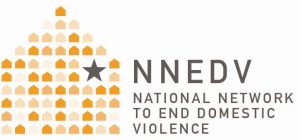
This unique 3-day training summit focuses on the intersection of technology and domestic violence, sexual assault, stalking, and trafficking. Covering a wide range of technology-related issues, this conference will be helpful to advocates, law enforcement, and legal professionals who work with survivors of abuse.

With the continuous proliferation of diverse Internet-based computing paradigms, large amounts of data containing privacy-sensitive information are being constantly published, collected, processed, and archived. This trend will be further fueled up by the new development of IoT (Internet of Things) technologies, smart cities, e-health, e-commerce, social and behavioral studies, social networking, edge computing, and cloud computing. As a result, fast-growing concerns about data privacy from academia as well as industry emerge in recent years, which motivate researchers and practitioners to think about questions such as how to guarantee that the collected or published data are not misused; how to ensure that data processing does not disclose any sensitive information; how to store the data securely for privacy protection; how to define new privacy policies that allow desirable services; and how to make sure that privacy policies issued by government and industry are not violated.
The IEEE Symposium on Privacy-Aware Computing (IEEE PAC) brings together experts from academia, government, and industry to present and discuss recent advances and new perspectives on related research and development in privacy-aware computing. We invite original theoretical contributions as well as system implementation/experimentation works on all topics related to “making computing privacy-aware” for privacy protection. Particularly, IEEE PAC solicits unpublished results in privacy threats and vulnerabilities of emerging applications for various computing platforms (mobile, IoT, cloud, social network, etc.), privacy-aware algorithms for big data analytics and networking, novel methodologies for privacy-protection (modern cryptography, game theory, etc.), policies for privacy-aware computing, etc.
Important Dates
- Submission Deadline: 04/22/2017(extended)
- Notification: 06/09/2017
- Camera-Ready Submission Date: 07/01/2017

| The GDPR Practitioner Certificate (GDPR.Cert) is the qualification for those undertaking the role of Data Protection Officer under the new General Data Protection Regulation (GDPR). The course takes place over four days (one day per week) and involves lectures, discussion and practical exercises. This is followed by a written assessment on day 5. Candidates are then required to complete a project (in their own time) to achieve the certificate. |
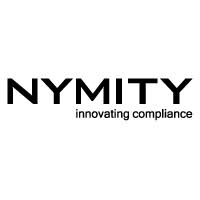
| Consent is one of the legal grounds for processing personal data under the GDPR. This webinar will address transparency and consent for the use of digital tracking and profiling technologies as well as how to effectively manage and demonstrate compliance with consent requirements for your organisation-wide personal data processing. Two expert organisations that support the Privacy Office/DPO managing consent will speak to:
Digital Technologies Consent Management Demonstrable Compliance of GDPR Consent Requirements This webinar will also cover: Digital Technologies Consent Management – Getting Started Demonstrable Compliance – Getting Started Registration Link: https://register.gotowebinar.com/register/1853222833298810625 |
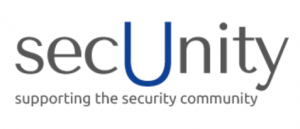
From August 7-11, 2017, secUnity invites you to its second summer school at Technische Universität Darmstadt. This event is organized by the Chair for Software Business and Information Management (http://www.is.tu-darmstadt.de) and will focus on research topics related to economic and interdisciplinary approaches to IT security and privacy.
The secUnity International Summer School on Economics of IT Security and Privacy provides an opportunity to advanced Bachelor, Master and PhD students as well as young scholars to learn more about IT security and privacy in general as well as in relation to business models and legal aspects. The event will be a mix of lectures and hands-on exercises, allowing the students to learn how to design a business model in the context of IT security and privacy which will be reviewed at the end of the event. Furthermore, we offer a multifaceted program covering theoretical and practical aspects in the lectures.
Topics covered during the summer school include (among others):
• Introduction to IT Security and Privacy
• IT Security Management
• Ethical Hacking and National Security
• IT Security Research
• Entrepreneurship and E-Business
• Legal Aspects of IT Security and Privacy
The registration fee for the summer school is free for students and 500 Euro for industry participants. This fee includes daily refreshments, lunch, and social events.
*** scholarships for accommodation and travel for international participants available ***

This workshop aims to bring together a growing community of researchers, practitioners, and policymakers concerned with fairness, accountability, and transparency in machine learning. The past few years have seen growing recognition that machine learning raises novel ethical, policy, and legal challenges. In particular, policymakers, regulators, and advocates have expressed fears about the potentially discriminatory impact of machine learning and data-driven systems, with many calling for further technical research into the dangers of inadvertently encoding bias into automated decisions. At the same time, there is increasing alarm that the complexity of machine learning and opaqueness of data mining processes may reduce the justification for consequential decisions to “the algorithm made me do it” or “this is what the model says.” The goal of this workshop is to provide researchers with a venue to explore how to characterize and address these issues with computationally rigorous methods. We seek contributions that attempt to measure and mitigate bias in machine learning, to audit and evaluate machine learning models, and to render such models more interpretable and their decisions more explainable.
This year, the workshop is co-located with the 23rd SIGKDD conference on Knowledge Discovery and Data Mining (KDD 2017). The workshop will consist of a mix of invited talks, invited panels, and contributed talks. We welcome paper submissions that address any issue of fairness, accountability, and transparency related to machine learning. This year, we place a special emphasis on papers describing how to bring tools for ensuring fairness, accountability, or transparency into real world applications of machine learning. We especially welcome submissions from practitioners in industry, government, and civil society.

Nymity has conducted extensive empirical research with organizations that are taking an accountability approach to GDPR compliance. Learn what organisations have implemented and what is planned for GDPR compliance. Gain a more granular understanding of what policies, procedures and other accountability mechanisms are being implemented to comply with the GDPR. Learn how organisations are repurposing existing policies, procedures, codes of conduct and other accountability mechanisms that have been in place to govern the business, and how they turn them into GDPR accountability mechanisms.
You will learn:
1. Organisational priorities for GDPR compliance
2. How different sizes of organisations and different industries compare in the GDPR compliance efforts
3. How Nymity Templates™ can help you operationalise ongoing compliance with over 900 practical resources that can help generate evidence for reviews and audits
Registration Link: https://register.gotowebinar.com/register/4495005127705161729

